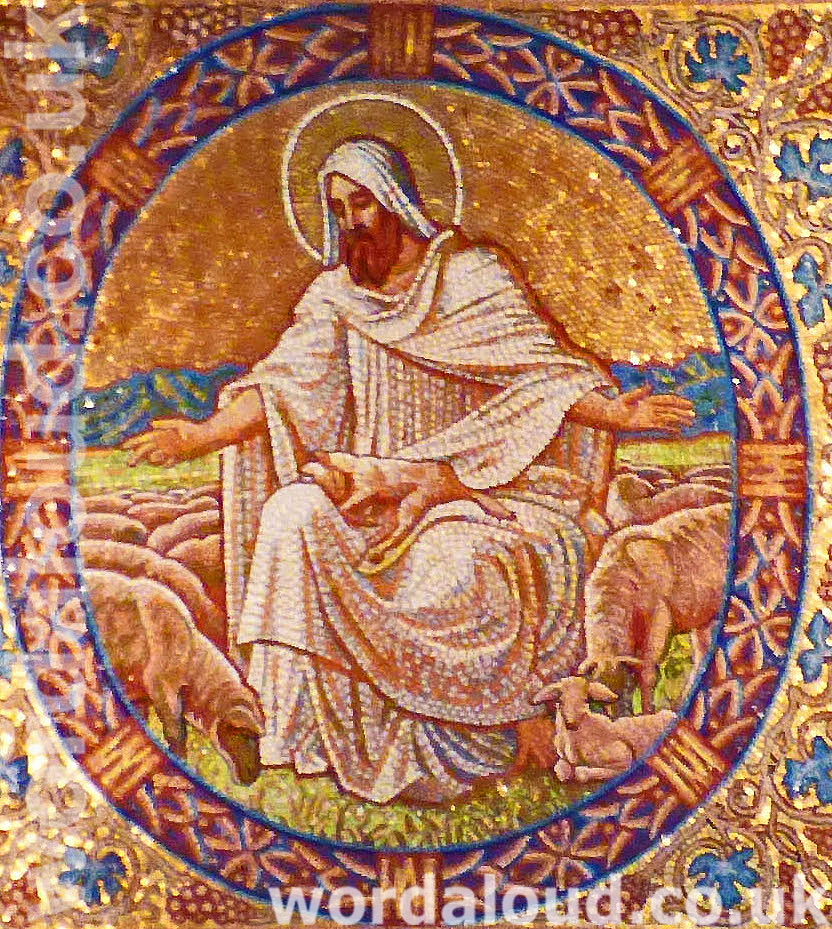Christian Art | King James Audio Bible | KJV | Parable Of The Workers In The Vineyard
King James Audio Bible | Matthew 20: 1-16
1 FOR the kingdom of heaven is like unto a man that is an householder, which went out early in the morning to hire labourers into his vineyard.
2 And when he had agreed with the labourers for a penny a day, he sent them into his vineyard.
3 And he went out about the third hour, and saw others standing idle in the marketplace,
4 And said unto them; Go ye also into the vineyard, and whatsoever is right I will give you. And they went their way.
5 Again he went out about the sixth and ninth hour, and did likewise.
6 And about the eleventh hour he went out, and found others standing idle, and saith unto them, Why stand ye here all the day idle?
7 They say unto him, Because no man hath hired us. He saith unto them, Go ye also into the vineyard; and whatsoever is right, that shall ye receive.
8 So when even was come, the lord of the vineyard saith unto his steward, Call the labourers, and give them their hire, beginning from the last unto the first.
9 And when they came that were hired about the eleventh hour, they received every man a penny.
10 But when the first came, they supposed that they should have received more; and they likewise received every man a penny.
11 And when they had received it, they murmured against the goodman of the house
12 Saying, These last have wrought but one hour, and thou hast made them equal unto us, which have borne the burden and heat of the day.
13 But he answered one of them, and said, Friend, I do thee no wrong: didst not thou agree with me for a penny?
14 Take that thine is, and go thy way: I will give unto this last, even as unto thee.
15 Is it not lawful for me to do what I will with mine own? Is thine eye evil, because I am good?
16 So the last shall be first, and the first last: for many be called, but few chosen.
The parable of the workers in the vineyard is addressed especially to the Jewish people, who were called long ago by God to be his people. Now, through the course of the day, new labourers are hired to go into the vineyard. These are the Gentiles, non-Jewish people, who are called now to become part of the new people of God.
The Jewish method of calculating time divided the day into eight parts, four night ‘watches’ and four ‘hours’ of the daytime, the first, third, sixth and ninth hours. The eleventh hour would be just before sunset, the end of the working day. Still, though, at this time, workers are still found idling and are called to enter into the vineyard.
Jesus asks us in this parable to consider our call to receive salvation, and to think about exactly what that means, how we may labour and what our reward can be. When the lord of the vineyard calls the labourers, the last to be hired called first, to receive their wages, all of the workers are given the same denarius, or penny, which would be the standard daily wages for a labourer. The workers who have laboured in the vineyard since dawn feel resentful and grumble: it doesn’t seem fair that they are not being paid more than those who have only just started work. The parable, then, asks us to step outside our normal ways of seeing things, to look afresh at what really is happening in terms of our relationship with the God and the gift of salvation. The rules of the marketplace no longer apply.
The gift God has to offer us is heaven, eternal life, salvation. You can’t have more or less heaven, three pennies worth of heaven or two or one. You can have heaven. Are we going to say to the person who finds God at forty or fifty or ninety or a hundred and ten: your heaven, your eternal life, is going to be of less value than mine? The idea is preposterous.
There is more. It should have been counted a privilege and a joy to work in the vineyard from the early hours. What seems to have happened, though, is that this early calling has led to a kind of conceit, a sense of entitlement, a forgetting that the money is the lord’s to give, that the gift of life is the Lord’s to give, and that the gift so far exceeds our deserving as to be unimaginable.
It is this fact of God’s grace which we are startled with through this parable. We have been idling in the marketplace. Now we are all called to our heavenly home. And so long as there is breath in our bodies, it is not too late.
‘So we must not complain, brothers, “as some of them complained”, as the apostle says, “and perished from the serpents”. What fresh sort of suffering, brothers, does the human race now endure that our fathers did not undergo? Or when do we endure the kind of sufferings which we know they endured? Yet you find some men complaining about the times they live in, saying that the times of our parents were good. What if they could be taken back to the times of their parents, and should then complain? The past times that you think were good, are good because they are not yours here and now.’ St Augustine

![]()








